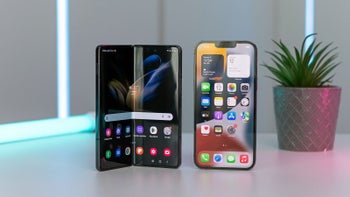Europe set to mandate new Android version updates by Christmas and 5 years of repairs
We may earn a commission if you make a purchase from the links on this page.

The European Commission is currently at the forefront of Android and iOS phone maker standardization in the interest of the consumer and has issued a proposal that mandates the mobile OS version and security update speeds, as well as the phones' ease of repairability with requirements that go above and beyond any right-to-repair the US has mustered so far, with adoption by year's end.
Android and iOS software updates
First off, security and major Android and iOS version updates will have to be available to all phones in these ecosystems sold in the European Union within 2-4 months of their release. Google released Android 13 on August 15, so that would mean every single phone, down to the Galaxy A03, would have to be updated before Christmas rolls in if the EC gets its way.
Security updates should be provided even faster, within two months of a discovered vulnerability and a subsequent update released by Google. In addition, at least 3 years of software support with major OS updates and 5 years for security updates will be mandated.
Apple's iOS phones and most major Android manufacturers have already committed to similar schemes so here they won't see much struggle. Samsung has even gone further by promising no less than four years of Android updates and five of security ones, so for the biggest Android handset maker the new regulations would be a non-issue.
Phone repairability
The other big proposal is for the repairability of said phones sold in the EU. Repair shops should get access to original battery, display, cameras, charging ports, mechanical buttons, microphones, speakers, and hinges for foldable phones for at least five years after a model in deprecated by the manufacturer.
In addition, phone buyers will have to get access to a big chunk of those repair parts bonanza as well, including screens, SIM trays, mics, hinges and ports, complete with spread-out detailed schematics on how to replace them individually, should they wish to do so.
The batteries are getting a special treatment as their replacement is left to the shops, yet the phone maker should provide them with originals or alternatives that are up to the 500 charging cycle standard, i.e. they should retain at least 83% charge after 500, and 80% charge after 1000 cycles.
The best phones in that regard out there - the OnePlus 10T or Oppo Find X5 Pro - have fast-charging batteries that can retain 80% charge even after 1600 full cycles which is an amazing feat and way above what the European Commission will be requiring.
Thus, the brands under the BBK holding umbrella - Vivo, Oppo, and OnePlus - which collectively hold the globe's largest market share of phones produced, will be way ahead of the rest of the Android or iOS gang here. They also already got Android 13, at least the high-end models, so they'd have no trouble fulfilling the software update requirements, too.
The European Commission says that the goal of its latest phone update and repair proposal aims to increase the handsets' useful lifespan from the current three to five years, thus diminishing electronic waste and encouraging recycling. Given that they already got their way to force Apple into the USB-C port camp, Android phone manufacturers would have to adjust to much more frequent updates for their low-end phones as well.










Things that are NOT allowed: